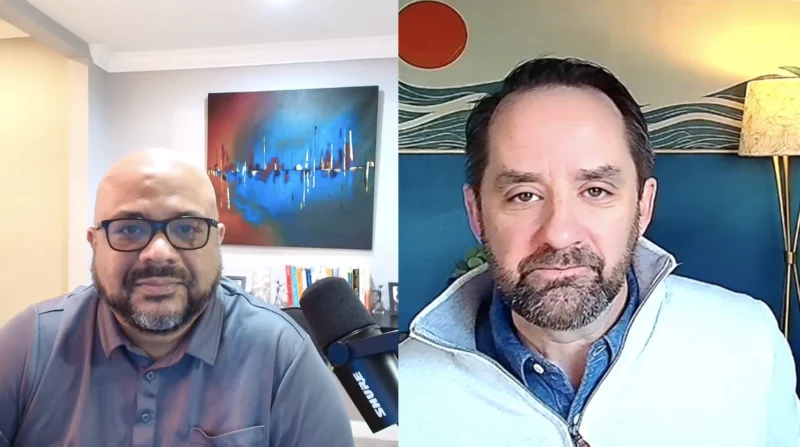UHD’s Security Management Program Stresses the Importance of Resources Over Technology
Several universities joined the ranks of major security technology and consulting firms at GSX 2023, the security industry’s leading yearly trade show and thought leadership hub, highlighting their evolving curriculums and how they’re reflecting major trends shaping security skillsets today. Representatives for the University of Houston-Downtown (UHD) were part of that line-up, drawing attention to their security management program, their virtual learning opportunities and what they’re doing to keep their training fresh in a fast-evolving industry.
UHD currently offers a cutting-edge Online Master of Security Management program (MSM) meticulously designed in collaboration with security management leaders. This program equips students with the essential knowledge and skills to navigate the ever-evolving cybersecurity and global security landscape. With a curriculum that delves deep into risk mitigation—from cyber threats to traditional criminal activities—students learn to identify emerging threats, conduct comprehensive risk assessments, and implement robust security plans. The fully online format ensures flexibility, catering to busy schedules with 24/7 lecture access. Graduates find opportunities in diverse areas such as Business Security, Corporate Security, and Cybersecurity Management, marking a significant advancement in their professional journey.
Jude Ejiobi, Ph.D., Director of the Master of Security Management Program at UHD, gave some insight into what its MSM program was doing to enable the next generation of security professionals and the focus on utilizing resources as a critical security strategy.
Jude’s Thoughts
“It’s anything to do with endpoint detection, incident response, and incident management; that’s what the focus would be on the hard skill side.
Leadership is leading from the top. Management can be from anywhere in the organization. Our goal is to attract and develop professionals to fill the security jobs of the future. And to help protect our society.
We have two concentrations: enterprise security and cybersecurity. We come to GSX to, first of all, advertise the program and to let hiring security managers know that there’s a place where they can get an education.”
Education vs. Training in Security
“We see education as separate from training. Education exposes you to different concentrations in different areas within that profession, whereas training focuses on one. So, at a university like ours, we get education as opposed to training. We come to GSX to advertise the program and attract aspiring security managers, yeah, so that they can fit into the society.
As I said, we have two concentrations—enterprise, which is more physical security, and cyber security.
Moving into the future, there’s beginning to be more and more of an overlap between the two. I’ve seen the camaraderie between enterprise and cyber get more and more necessary than before. Technologists play their role; artificial intelligence is playing its role.”
The Importance of Resource Management in Security
“One of the areas we focus on is the management of resources, people, time, the human element, and the human factor, as opposed to technology. Technology is great. It’s like having the best alarm system in the house. Suppose you forget to turn it on or don’t have a routine. So the the processes, the management of the, and again, resources, finances, that’s where the focus is. In that case, that’s where the failures that lead to security incidences, and that’s where our curriculum targets. And that’s why we target security management.
They say hard skills get you hired; soft skills get you promoted. So, split that fine line between leadership and management leadership is leading from the top. Management can be from anywhere in the organization. So, our curriculum focuses a lot on leadership and separating that from management. So management is the day-to-day activity and what you do to move things from one place to another.
Leadership is governance top-down or bottom-up. So, we are one of the only schools I know of that make that distinction and train people in that way. We also have opportunities for research in those hard skills, whether how to configure a firewall or write policies and stuff like that. We also have a push to curriculum in that direction as well. But our philosophy, leadership management, knowing the difference, top-down, bottom-up, knowing, you know, being pragmatic.
In the management of security, that’s one of our core competencies. We separate soft skills from hard skills. On the hard skills side, it is anything to do with endpoint detection, incident response, and incident management. That’s what the focus would be on the hard skill side. On the soft skill side, ethics, governance, people management, event management, and incident management. If an incident happens, who talks to the media, who speaks to who goes to court, who stands in front of Congress to respond, to defend what you did and what you didn’t do well? So incident management is ikey endpoint detection and response.”
The Vulnerabilities of Personal Devices
“Another area of huge vulnerability is a personal device. When it comes to wireless, most people focus on Wi-Fi. Still, most of the internet today is through cellular white cellular internet, and the vulnerabilities there are huge—knowing what, as technology changes and as we become more and more dependent on cellular technology, security focus should follow that trend well.”
Article by James Kent








